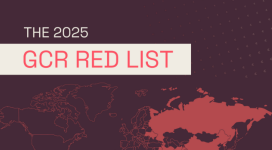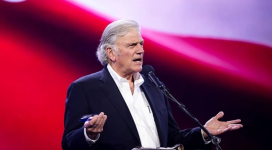BUDAPEST, HUNGARY – The European Evangelical Alliance created a special task force that is represented in the European Union to help it formulate a policy on “religious liberty and ethics questions,” Oct. 23. The new division was part of the many resolutions drawn during the five day General Assembly meeting in Budapest, mid October.
“The EEA aims to raise awareness of religious liberty issues and the legal position of evangelicals within each country, with a view to being able to respond more systematically to increasing challenges in this area," the Alliance stated.
During the Assembly, the 150 delegates representing 30 countries expressed concern that the EU constitution will make no reference to God and Christian values. In lieu of such concerns the task force will act as a "public affairs team with a socio-political officer and representative to the European Union."
Its General Assembly also accepted "a strategic plan for the period to 2010. Key values in the EEA partnership include trust, friendship, information flow, generosity and mutual ministry."
However the organization admitted that "difficulties like economic disparity and information overload," may complicate those objectives but added it "is also convinced that partnership in mission in essential."
Rev. Ulrich Parzany from Germany, one of the key-note speakers, said that the Bible teaches importance of Christian partnership. This was mirrored in the overall theme of the conference: "Partnership in Mission: stronger together, weaker apart."
In addition to the changes to the social and political agenda, the Rev Nikolai Nedelchev of Bulgaria was re-elected to a second term as President of the EEA. The General Secretary is Gordon Showell- Rogers from the United Kingdom.
The next EEA General Assembly will be held in October 2004 in Greece, in conjunction with the Hope for Europe Round Table. The EEA is a regional body of the World Evangelical Alliance representing evangelicals in 130 countries.







